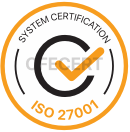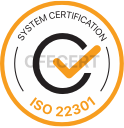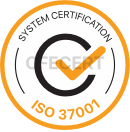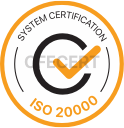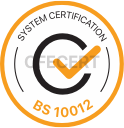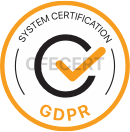PAS 99 is the world’s first integrated management systems specification. It helps businesses manage their certified systems under a single framework. It is the world’s first integrated management system requirement specification based on the six general conditions of ISO guide 72 (the standard for writing management system standards).
Benefits of Integrated Management Systems
The Integrated Management certificate shows that you have fulfilled all your responsibilities and reinforces the trust that potential customers, suppliers, investors and shareholders have in your organisation.
This is more than just good public relations. Implementation and certification can make a significant difference to your business’s bottom line at less cost.
Some of the benefits for your organisation
- Reduced costs – avoiding duplication of internal audit, document audits, training and administration and adopting the management systems of the future today increases your efficiency.
- Time savings – using a single management review.
- A holistic approach to managing business risks – ensuring that all consequences of any action are considered, including how those consequences affect each other and associated risks
- Less duplication and bureaucracy – by adopting a single set of processes, the requirements of these standards can be co-ordinated, the workload eased, and disparate systems avoided.
- Less overlap between systems – responsibilities are defined from the outset, avoiding conflicting understandings of quality and the environment
- Improved communication both internally and externally – by setting a single set of objectives a culture of team approach can develop and improve communication.
- Improved business focus – having a single system linked to the strategic objectives of the business contributes to the continuous development of the organisation.
- Higher employee morale and motivation – by making roles and responsibilities part of the objectives and strengthening the link between them, changes and new initiatives are easier to implement and contribute to a more dynamic and successful organisation.
- Optimised internal and external audits – minimizing the number of audits required and maximizing the number of participants.
The Integrated Management System (IMS) enables different parts of the components to bring together a set of standards that must be met.
Some of the standards that have come up with the IMS are:
ISO 9001 Quality Management: Used to increase the scope of products and services. A quality management system compliant with the ISO 9001 quantity can be established to ensure and optimise customer volume and support continuous consolidation.
ISO 14001 Environmental Management: Used to reduce environmental impacts and ensure sustainability. This standard includes monitoring growth performance, complying with legal requirements and managing risks.
ISO 45001 Occupational Health and Safety: Used to prevent occupational accidents and occupational diseases. It aims to assess occupational health and safety risks, ensure that people provide them and achieve legal regulations.
ISO/IEC 27001 Information Security: Addresses information security management. It is used to protect information assets, record data and increase information security risks.
ISO 22000 Food Safety: Addresses food safety management. It is used to ensure hygiene, safety and quality in food production, processing and transport.

ISO/IEC 20000 IT Service Management: Addresses the management of information technologies. It is used to expand IT units, ensure and continuously support customer volumes.
As a result, an integrated management can improve the performance of your business system and you can get all the details about the certification process with professional support. For more information, please contact info@cfecert.co.uk



